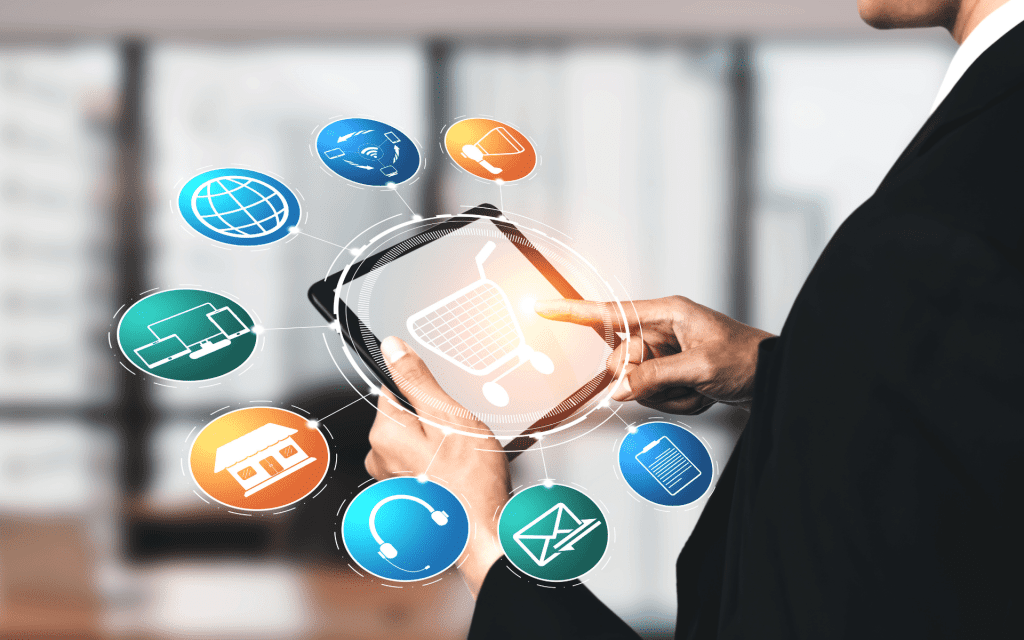If there is anything that the time of COVID-19 has taught us, it is that technological preparedness is an essential part of running any business. In the past few months, many businesses that did not have the necessary infrastructures in place have struggled to keep up with their competitors who did. The adaptation of technology in the business space has become more prevalent in the past few years and by current trajectories, it seems that neglecting to keep up will come at the business’s expense.
The main reason for this is that many businesses are relying on more and more work done outside of the traditional office space. Most modern technologies are equipped to make it possible to work from anywhere and access company data and resources while away from the office. This is thanks to cloud storage and operation. Even if there is nothing done out of office (which is hard to believe), it provides businesses with a secure storage solution that isn’t dependent on files stored on physical hard drives at the office location.
Furthermore, technologies also make automation possible. For many tasks that will take a few hours when done manually, an algorithm can do the job much quicker and with better precision. This means that technology can save you a few hours of laborious administrative tasks that are better spent growing your business and making direct contributions to its success.
Below we detail a few technologies that your business cannot sensibly go without in the modern business world.
The basics
Office suite:
Without an Office Suite, you are severely limiting the opportunities in your business. Unless you can count your employees on one hand (and even then), an office suite can save you lots of trouble and frustration. The main reason for using an Office Suite is that it creates a centralised point from which your organisation can operate and is not reliant on any one member. Many businesses do not realise the problems that a non-centralised system can cause until one of its members leaves the organisation, where data transfer can be extremely difficult, while removing administrative permissions for the member that leaves.
On a practical level, an Office Suite allows easier collaboration between people in your organisation (even allowing them to work on the same files simultaneously). Furthermore, an Office Suite will include all the various applications that make the various digital tasks in your business possible, with cross-application filesharing from the centralised system.
Antivirus software:
Most of the threats to your business’s security in the modern world will come from digital sources. Ever since people have started storing sensitive information in digital formats, criminals have been trying to obtain illegal access to such information. Without trustworthy anti-virus software, you are making yourself vulnerable to each and every attack and putting your computer and, most importantly, your company at risk.
Even with preventative measures, cybercriminals are extremely savvy in the way they attempt to steal sensitive data. Making sure that every employee has a legitimate antivirus program installed on their computer can go a long way to securing your business’s safety. A good antivirus program will also protect against phishing and malware, and will increase the general safety of your employees and systems.
Accounting software:
If you are a small business, you will need to invest in some form of accounting software. With the complicated nature of payroll, bookkeeping, accounting and taxation, attempting to do everything manually (or even by spreadsheet) could have disastrous consequences.
Software can help you keep track of your financial situation while you grow. Naturally, you will not want to go at it alone, and you will need to periodically make use of a bookkeeper or accountant, but having the right software can really smooth the processes as you grow and potentially start looking at hiring a full-time bookkeeper.
The main reason you should not solely rely on the software of your financial managers is that having easy access to your financial data can go a long way to planning for your business’s success.
Project management software:
If you work in an industry where multiple people are working on one project at the same time, you will have an extremely tough time keeping everything in order and on track if you simply rely on traditional electronic communication, such as email and instant messaging.
With a Project Management program, you have an excellent overview of the tasks of individual players as well as the overall progress of a project you are working on. It also helps identify problem areas in your processes or bottlenecks in your business’s line of production. Not only will you be sorting out issues long before they become problematic, but you’ll also negate the need for unnecessary communication and check-ups that may hinder progress.
Website and mail:
The world is moving online and if your business has not moved online yet, it puts you at a great disadvantage compared to your competitors. Not only is it necessary to be online, but to be able to give your existing and potential clients easy access to all the questions that they have about your business. Domain registration and dedicated mailing addresses will add professionalism and visibility to your business.
Leading technologies
Fibre and 5G
Making sure that your business is geared to handle high-volume internet data is becoming more and more important. As things stand, it seems DSL/ADSL technologies are on the way out while the fast speeds of 4G LTE feel slower by the day. In order to keep up with the data demands of your business, you should really start lookingfor alternative, newer internet technologies, such as 5G and Fibre technologies. By increasing your bandwidth, you’re decreasing the frustration of slow loading times and unstable real-time communication connections (which seems to be becoming a major player in the way businesses will communicate after the COVID-19 pandemic.
Smart Offices
While not a necessity, savvy business owners would do well to keep their eyes peeled on the development of smart technologies for the office space. Maximising productivity and performance in the workspace can be achieved by implementing interconnected smart devices/systems. Having an integrated smart office is already possible with devices such as the Google Assistant or Alexa and their compatible smart devices, although there are still some regional functionality limitations in South Africa.
Remote desktops
One of the most effective technologies that businesses have been using during the COVID-19 lockdown is remote desktops. Remote desktops allow you to use office computers from a remote location (such as your home). As more and more people return to work, it does not damage the merit in investing in remote desktop software as it allows those businesses functioning in always-on industries to utilise office equipment wherever they are.
The Future of Business
While so many businesses have seen what a lack of technological readiness could mean for their sustained success in the last couple of months, it also prepares them for the technological shift that has been coming for quite some time.
Naturally, these technologies will mean that you need to add to your expenses in some form, but these expenses open many avenues for faster and better work that will increase your overall revenue and more than make up for the expense.
How are you gearing your business for the future?
References
- https://www.lifehack.org/343909/5-best-new-technologies-for-your-business
- https://smallbusiness.chron.com/list-commonly-used-business-software-59849.html
This article is a general information sheet and should not be used or relied on as legal or other professional advice. No liability can be accepted for any errors or omissions nor for any loss or damage arising from reliance upon any information herein. Always contact your legal adviser for specific and detailed advice. Errors and omissions excepted (E&OE)
















